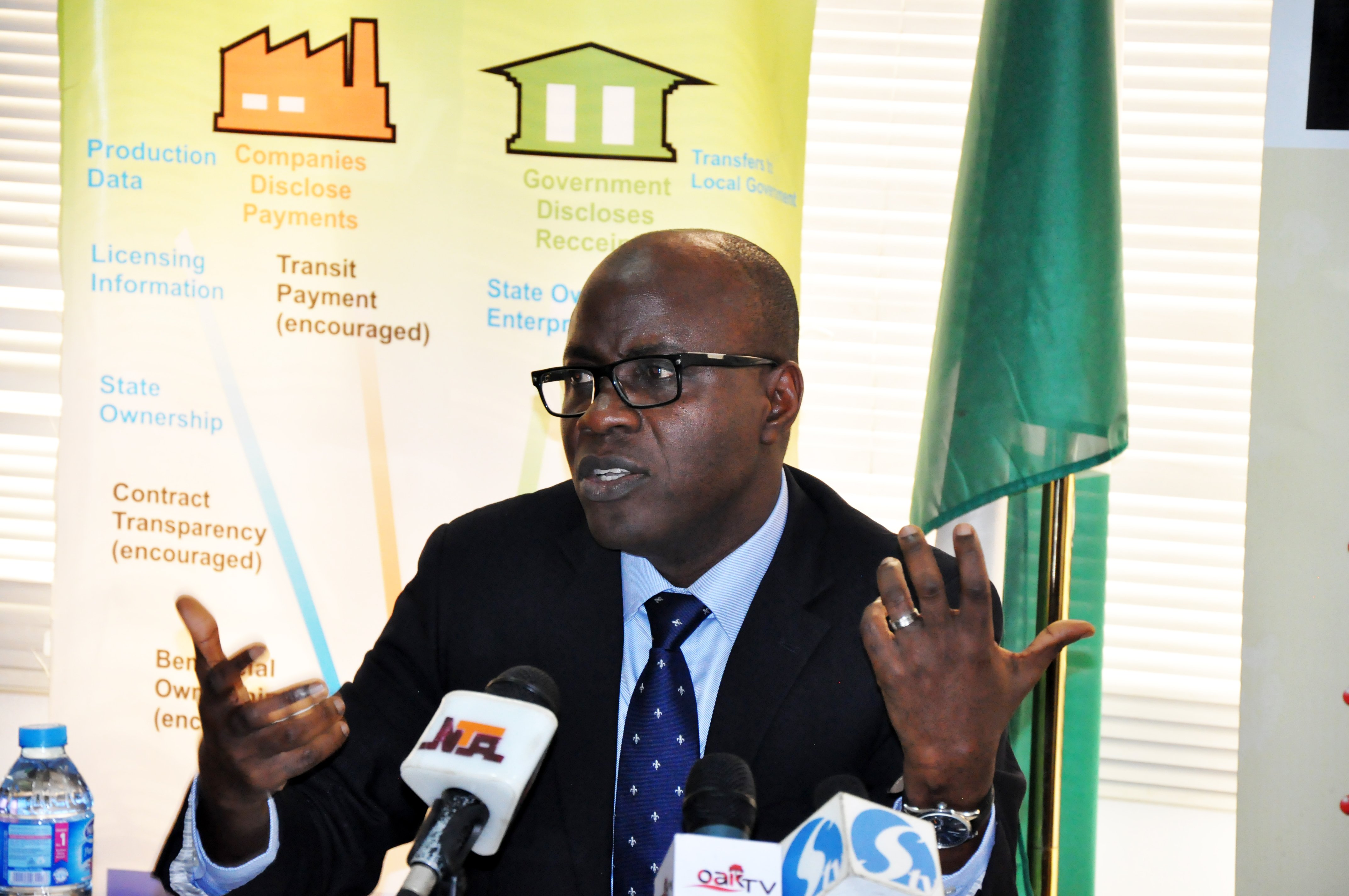Working as the Executive Secretary of the Nigeria Extractive Industries Transparency Initiative (NEITI), a small but critical government agency, provided me a great opportunity both to experiment and to learn. I learned more about myself, about people, about public life, and about Nigeria. I will share here some of the important lessons that I picked up from my stint in government, lessons which I think may be of benefit to those planning to go into or are already in public life and to others interested in better governance in Nigeria. I will share three key takeaways.
My first takeaway is that we need to do more to prepare political appointees for the important tasks they are saddled with, especially as administrators of public agencies. In the system that we run, most of the political appointees are drawn from the political and professional classes. This is understandable, especially because there is supposedly a professional and apolitical civil service that should undertake the technical component of the work and guide the CEOs in carrying out their administrative, managerial and leadership functions. From my experience, this is a big assumption. But even if the assumption holds true all the time, and in all contexts, it is important for the political heads of the institutions to know as much as their advisers and foot-soldiers, and for them to understand the way government functions from the most routine activity to the most sublime.
While private sector experience and professional skills are transferable and should enrich public sector work, there is no substitute for understanding how government works. Not understanding this not only limits the impact of political appointees but also makes them vulnerable. Government is largely about process. The easiest way to get into trouble in government is to flout extant rules or to not follow process. The fact that the public administrator is trying to speed up things that are usually slow or trying to get important things done, or even trying to save the government some money would not count in any case if process is not followed. Many good people with good intentions have been hobbled, and made open to manipulation and even blackmail, because of the lack of deep familiarity with Public Service Rules, Financial Regulations, and myriad of other rules and regulations, practices and mores, and circulars.
To enhance the effectiveness of political appointees, it will therefore be important to have structured trainings on government processes for political appointees before they even treat their first files. To the best of my knowledge, this is not how it happens currently. Ministers sometimes have inductions, but the people heading hundreds of government agencies are usually left to their own devices or at the mercy of civil servants who are versed in how to extricate themselves at the first sign of trouble. Such structured trainings should be for at least between two to four weeks and should include the fundamentals of management, leadership, policy formulation and implementation as well as the important matter of ethics in public life. The same structured trainings should be extended to career civil servants who get promoted to administrative/political positions, because working in an agency even at the directorate level is not the same as leading the same agency.
Advertisement
My second takeaway is that professionals and others who get into government will need more than enthusiasm and good intentions to succeed. Enthusiasm and good intentions are great and necessary success factors but they are not enough. Our public sector surely needs more competent and more public-spirited people, and we should continue to encourage as many people as possible to get involved in public governance. However, being successful in other spheres of life and being keen on making a difference in the public arena would not necessarily guarantee success, as we have seen in too many instances. I will recommend a good dose of deliberateness, clarity, wariness and paranoia even.
The starting point will be to get a good understanding of our public sector: how it is configured, how it works, and how to get things done within that space. The public sector is different from the private sector, the academia, the media, and the development sector. It has its own logic, its own pace, its own traditions, and a strong lobby invested in sustaining the status quo. Many things need changing, but you can’t change what you don’t understand. Related to this is the need to know how to stay out of trouble. Heads of agencies double as the chief accounting officers and have direct responsibilities for all the processes and transactions. As said earlier, they are hardly properly trained for these sensitive roles.
My number one advice for anyone appointed to head an agency would be this: don’t sign off on anything until you fully understand the processes and rules. If they don’t prepare you, prepare yourself. Get a good head for numbers and be comfortable with the processes. Remember this golden rule: trust but verify. Review everything that needs your signoff not just because you are responsible for the actions of those below you but also because you are personally liable as the chief accounting officer. It is better for you to assume that everyone is trying to set you up and stay out of trouble than to assume good intentions on the part of others and put yourself in avoidable trouble.
Advertisement
There will be attempts to stampede you into certain directions, especially on assumption of office. They will appeal to the need for urgency and your ego as a person keen on making the difference. It will be important to resist such because you can easily be sucked into other people’s power games. Change in leadership is largely seen as a moment for reset by the contending power groups within an organisation: those in control want to stay so; those who are not, want to seize control. Without having a good grasp of the dynamics, the unwary CEO gets captured by one of the groups and starts, unwittingly, fighting other people’s battles. It will be important to learn to temporise, to treat the practised, fawning adulation of bureaucrats with amusement, and while remaining open to ideas, to view offers of help and even pieces of advice with some scepticism.
My second piece of advice to a political appointee would be to ensure clarity in two important areas. The first is about values, being clear about what matters, and where the boundaries are. Life comes so fast at people in public office, and not having clarity about where the lines are would leave most public officials very vulnerable in a very permissive environment where the most common lines are: ‘it is allowed’, ‘it is standard’, ‘everyone does it,’ ‘it is just to motivate your people’ and ‘this is Nigeria, you need to help your people’. If you get into government without a clear idea about your values, it is very unlikely you will come out with one.
This level of clarity is also important about what you want your legacy to be. Though not everyone would have the same level of lucidity on the first day, it is still important to spend some time thinking about the end even before stepping out. There will be so many things to do, especially in terms of paperwork and meetings, that it is easy to get sucked into the motion of it all. But having a clear idea about where and how you want to make the difference helps with focus and discipline. However, such clarity must be backed by an appropriate strategy and diligent execution.
Lastly, any public administrator who is interested in more than just moving things along should expect and prepare for the backlash. There is an entrenched constituency deeply invested in sustaining the dysfunctional status quo. If you are interested in changing things, know that you will be resisted and sometimes maligned. Pushing for change will come at a cost, sometimes personal. Whether you have the political support or not, know that there are moments you will be alone and that you easily can be sacrificed for political and other expediencies. You need to decide if public sector work is for you in the first place, and if your answer is in the affirmative, you need to be mentally prepared for the battles. You need to have the sagacity to navigate the minefields, to know when to insist or retreat, to build a solid support system and to studiously keep your corner tidy. The last part on strenuously staying above board is to ensure that you don’t make it too easy for them when they eventually come for you.
Advertisement
My third takeaway is that we need to reform the environment in which public officials work. This is in two parts. The first is that we need a root-and-branch reform of our civil service. While there are many hard-working, competent, and poorly paid civil servants, my sense is that most of them lack the commitment and the skill sets needed to deliver effective and efficient governance in the 21st century. As it is in countries making meaningful progress, we need our best brains in our civil service, and we need to pay them well and give them the tools to work with. At the moment, most of our civil service looks like a dumping ground or a welfare scheme. There are agencies that have been created to mimic the professional environment of the private sector, but most of those are stuffed with relations of the highly connected and people who mainly want the best of two worlds: the salary of the private sector and the protection and permissiveness of our public service. Without the support of ethical, committed, competent and professional civil servants, the best of political appointees will only labour in vain.
Most importantly, we also need a thorough reform of the mind of the larger populace. As a people, we need a complete change of our conception of power and public office. Power to most Nigerians, including the led, is a tool for domination, not development. The idea that power belongs to and is exercised on behalf, and for the good, of the people gets mouthed often but hardly squares with our reality. Subconsciously, we still live in our mostly monarchical past where the king owned the land and everything beneath and above it. The person with power is the modern reincarnation of the kings of yore. Or at least fancies himself or herself so. Just observe any Nigerian with a form of power over others, from the receptionist to the CEO, and you cannot miss that the instinct to oppress others runs so deep. In addition, public office, the modern sphere of authority, is still seen in largely predatory and prebendal terms. The public is the space where you go to help yourself, not to serve others. The idea of service to the collective is upstaged by that of service to self and to kith and kin. In a clime where most people are socialised to privilege the self over the society, where abuse of office is standard, where privatisation of the public is tolerated and even expected, we need more than individual examples and more than a thousand points of lights to restore both ‘public’ and ‘service’ to our public service.
In fairness, there have been various attempts at reforms. But we need to go beyond a narrow focus on systems and sanctions as ways of limiting bad behaviour. As important as systems and sanctions are, they can easily be neutered by a defective operational environment. As long as we continue to conceive of public office as an avenue for personal advancement, for predation, for the privatisation of the collective, nothing much will change. In fact, the country will continue to slide backwards. The unchanged mind will undermine the changes in systems and sanctions, as we have seen even with experiments with accountability mechanisms and institutions. To avoid the fate of Sisyphus, we need to change the entrenched environmental factors— beliefs, values, and attitudes—that condition behaviours. Individual agency is key. But the environment is the king.
Above is an edited excerpt from ‘The Arc of the Possible’, a memoir by Waziri Adio, on sale from December 1.
Advertisement
Views expressed by contributors are strictly personal and not of TheCable.
Add a comment







